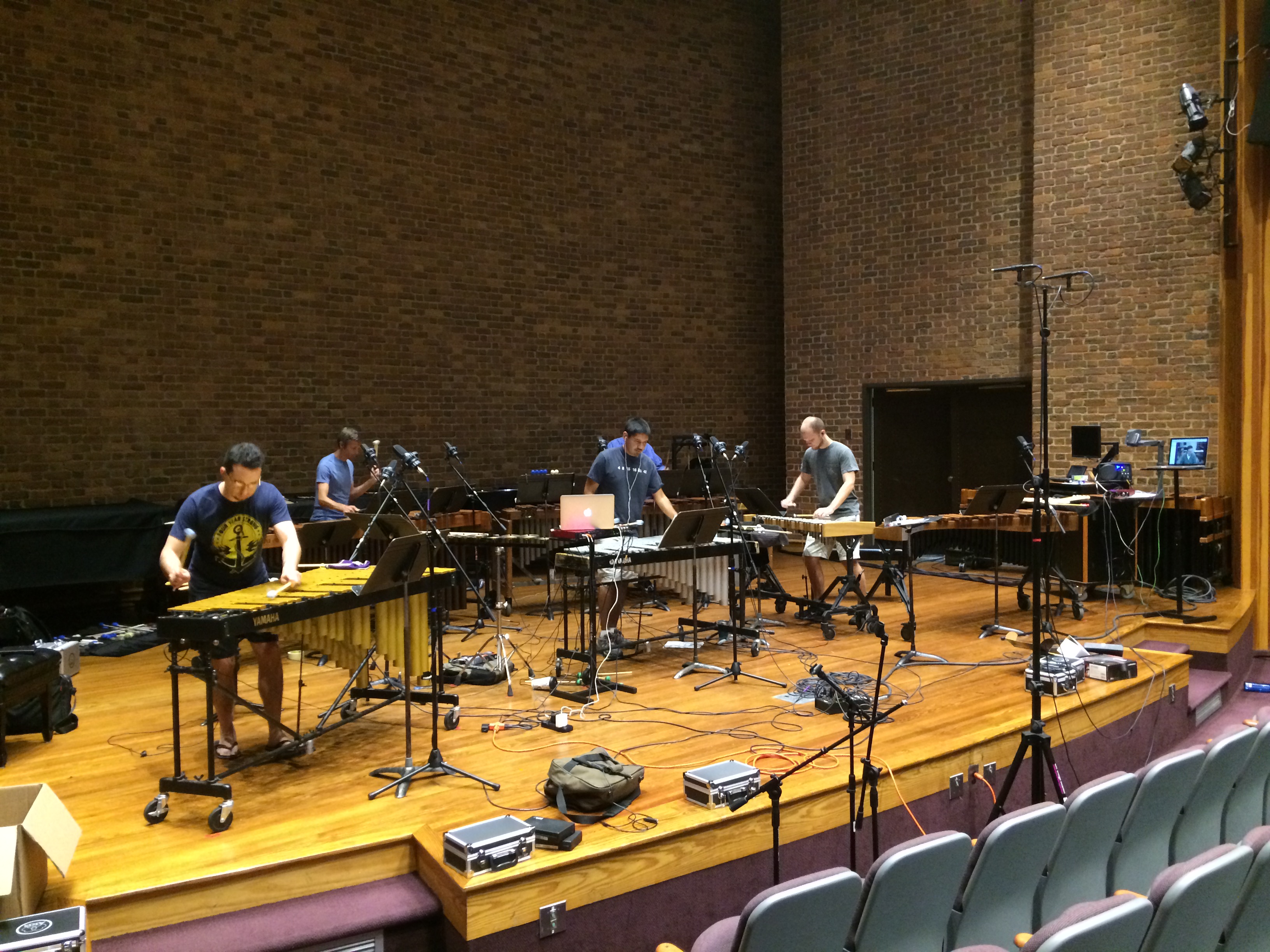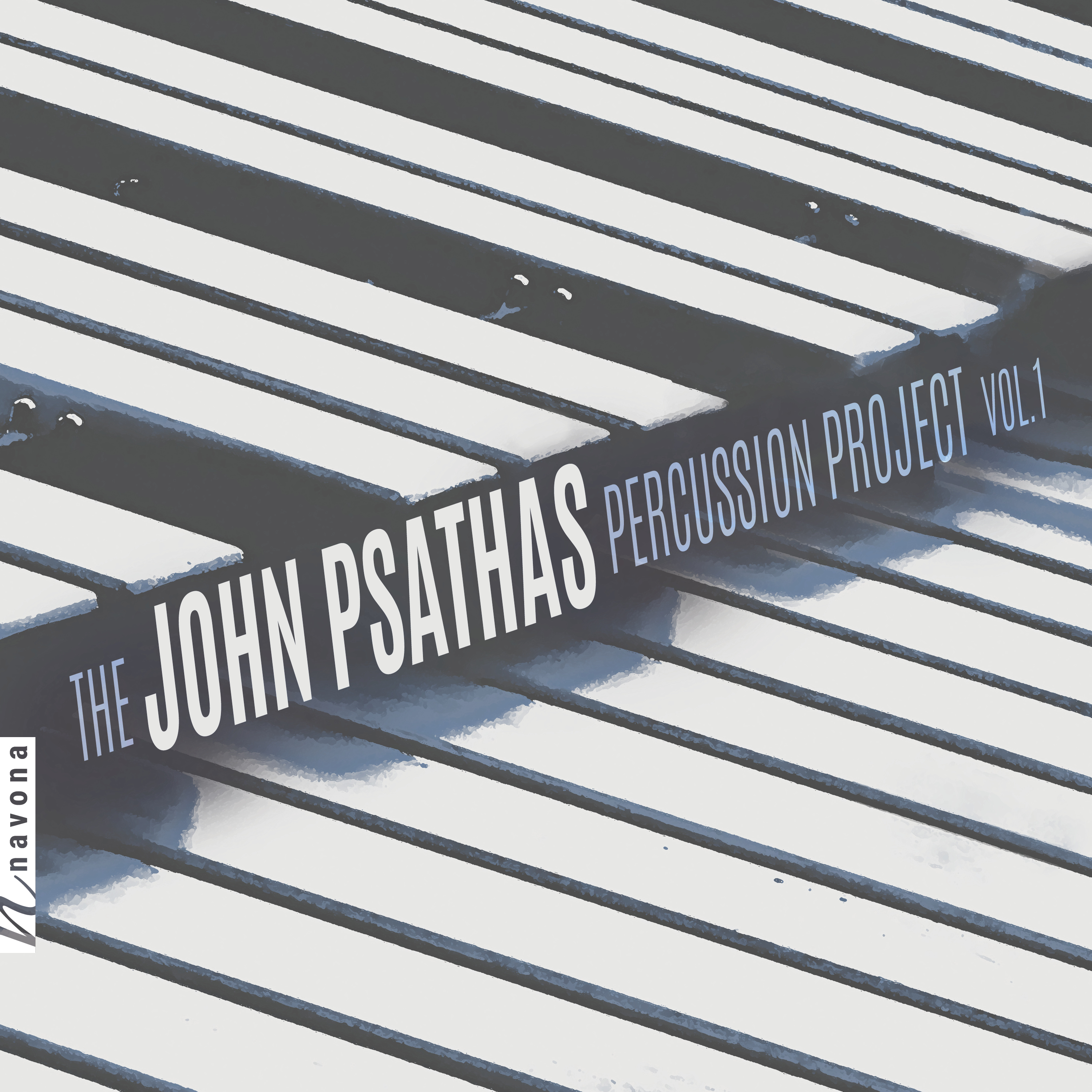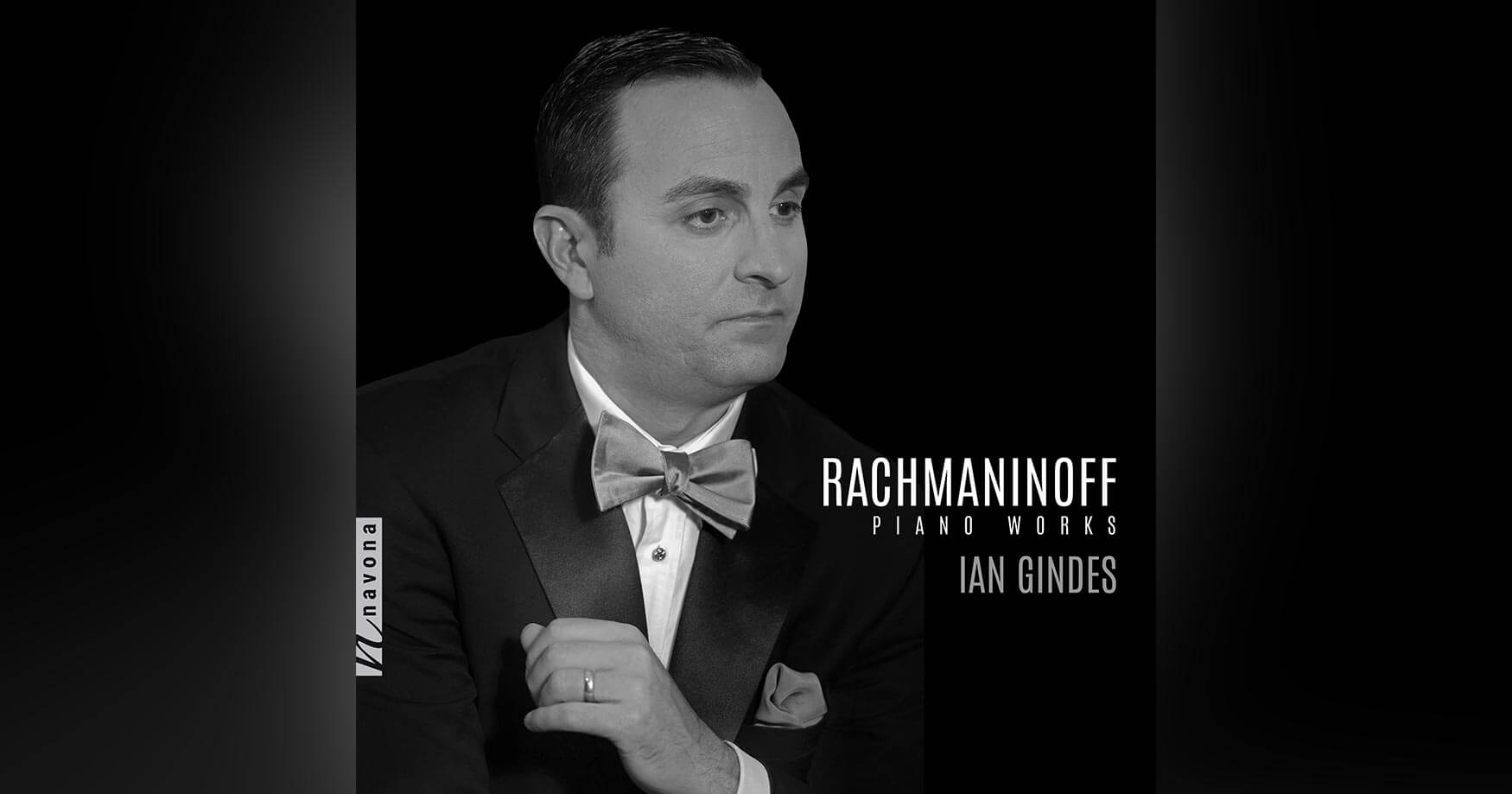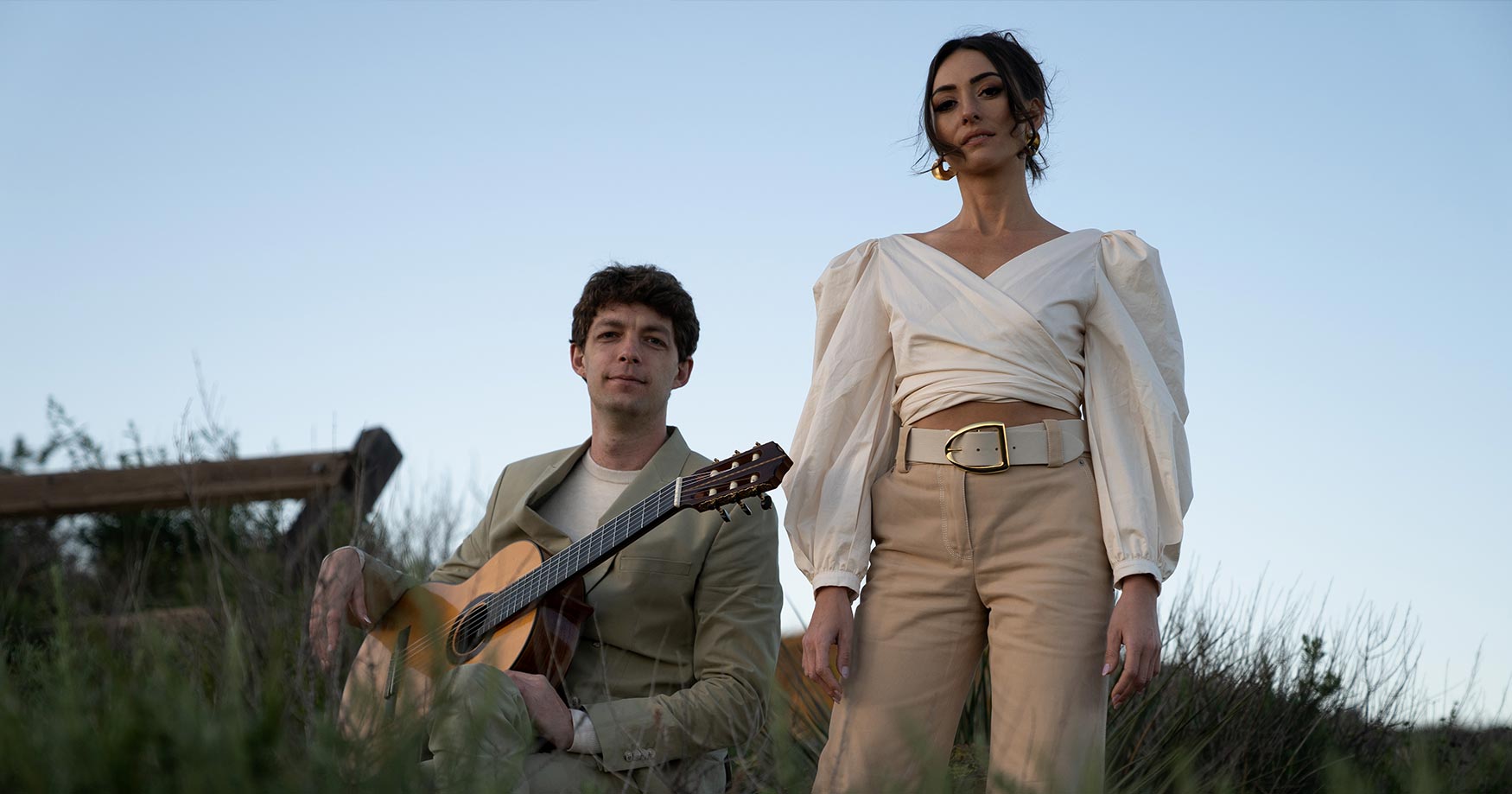With THE JOHN PSATHAS PERCUSSION PROJECT VOL. 1, the creative minds of two figures in contemporary music came together as one for a truly unique collaborative album. Greek New Zealand composer John Psathas has led a highly successful career collaborating with artists around the globe, from projects with jazz legends Michael Brecker and Joshua Redman to a Billboard classical-chart-topping album with System of a Down frontman Serj Tankian and more. John has moved concert audiences in more than 50 countries on all 7 continents (yes, even Antarctica). Percussionist Omar Carmenates, the arranger and director on the album, is an educator and performer who holds a position as the Associate Professor of Percussion at Furman University in Greenville SC. A skilled percussionist and arranger, Omar’s role was crucial in making John’s artistry come to life in this release.
THE JOHN PSATHAS PERCUSSION PROJECT is an expansive, multi-year collaboration with a mission to reimagine works from John’s compositional oeuvre entirely for percussion instruments. This idea spawned from a version of John’s piano and gamelan piece “Waiting: Still,” which Omar re-worked into a percussion trio for his 2013 album, The Gaia Theory. After this initial arrangement, John asked if Omar would be willing to arrange a few more works of his that he felt would also make great percussion pieces. These first steps in collaboration have led to a fruitful relationship between the two artists, and the release of an album that is sure to spark creativity and innovation.
Today, John and Omar are our featured artists in “The Inside Story,” a blog series exploring the inner workings and personalities of our artists. Read on to learn which moment was the favorite on the album for both artists…
[Featured image: Omar Carmenates second from left, John Psathas third from right]
Who was your first favorite artist(s) growing up?
J: There isn’t just the one. Back then (1970’s/80’s) it was – Keith Jarrett, Beethoven, Alan Parsons, Peter Gabriel, Toto, Billy Joel, Joe Jackson, Chick Corea, Split Enz, Bach, Prince, and all of the Greek music saturating our house and restaurant.
And now – Bijan Chemirani, Pat Metheny, Keith Jarrett, Max Richter, Nitin Sawhney, Beethoven, Jeff Buckley, Ligeti, Yuri Shaporin, Paul Avgerinos, Ross Daly, Nik Bärtsch, Toto, etc. etc. etc.
When did you realize that you wanted to be an artist?
J: Around the time of my 11th year, I used to work quite late in the family business, often until early morning hours. Later, at home, when everyone was asleep I would listen to music with headphones. I was undiscriminating and listened to whatever records I would find in the house. I started having very intense experiences with certain pieces of music: a powerful emotional reaction and an experience of being transported to some other place in the human spirit.
I remember an old LP of Daniel Barenboim playing Beethoven’s Moonlight Sonata – but I skipped the first movement altogether, it was the fire of the last movement that I wanted. Also, a piece of music called ‘Lap of the Gods’ on Alan Parson’s Pyramid album. This was exotic and strange, but heavy with purpose and had an intense trajectory. I listened to these pieces constantly, feeling the music more strongly each time, and being transported further into this mysterious and disturbing realm.
There was nothing else in my life compared to these experiences. I couldn’t explain them and I couldn’t share them. I began improvising a lot at the piano, trying to find that thing that I was experiencing through music. It was then, when I was 11-12 years old that I decided the best thing I could do with my life was to crossover into this concealed world where I could be the person creating the music that gave other people this incredible experience.
This has been my aim ever since, and my belief in the value of this ambition hasn’t wavered. I became a music theory junkie and lived at the piano, often playing all through the night and going bleary-eyed to school the next day.
What was your most unusual performance, or the most embarrassing thing that happened to you during a performance?
J: I have experienced the most epic large-scale train-wrecks during performances (and worse, during premieres) of my work. These moments are devastating because they represent the culmination of (in some cases) an entire year’s work. But they teach a very important lesson – you can, and must, learn how to survive anything.
What is your guilty pleasure?
J: Doing nothing.
O: Electric vehicles; and more specifically Teslas! Our family is the proud owner of two of them and we are obsessed with the entire Tesla/EV ecosystem. I spend way too much time reading forums, chatting on social media, and researching about the inner workings of these cars. My kids regularly get in on the obsession too; so much so that they’re able to spot other Teslas in the dark just by their headlight pattern!
If you could make a living at any job in the world, what would that job be?
J: Playing in a band. Preferably Toto.
If you could spend creative time anywhere in the world, where would it be and why?
J: Istanbul. It is the most extraordinary, multi-layered, historically complex city I’ve ever been to.
O: I’ve spend a few days thinking about this question, and I can’t specifically think of a “where” that I would like to spend my creative time, but “where”-ever it is would be a place that could stop time, clear your calendar, and pour you a perfect glass of bourbon on demand.
With two talented children and a working spouse, I feel that I’ve gotten quite efficient at getting creative work done in the cracks of time between driving to dance rehearsals, sports practices, and work commitments. However, some of my most enjoyable creative experiences have come from the increasingly fleeting windows of time where I have nothing immediately pressing. In those times, I often feel like I have a calm mindset, an exploratory curiosity, and a willingness to not have to get things immediately “right” that often push my music-making in new directions that I had not anticipated.
If you could instantly have expertise performing one instrument, what instrument would that be?
J: Voice. I am a total singa-phobe. Someone must have told me I was no good when I was a kid (probably the same person that told me I couldn’t dance).
O: I’ve always thought it would be fantastic to be a bass guitar player because I think it would be interesting to play alongside a ton of drummers to learn what feels good (or not so good) to play to. As drummers, we’re often in search of a “pocket” that makes a musical moment feel right but sometimes what we think feels great in the moment can actually feel completely wrong to the rest of the group. Thanks to their inextricable link to the drummer, I think bass players have the best seat in the house to evaluate a drummer’s “pocket” and feel and I’d love to be in that seat with any and all of the great drummers playing today.

What was your favorite musical moment on the album?
J: The album is incredible from start to finish. I guess if I have to pick a favorite it’s the Piano Quintet. Especially the first movement.
O: Without a doubt, that would be the entire Piano Quintet. From the outset, I struggled with how to arrange this piece as the whole piece, but the second movement in particular is filled with extended string techniques and other effects like microtonal playing which do not immediately translate well to percussion instruments. However, in speaking with John to select which pieces to include in this project, this was the one that he was most passionate about. Knowing this, I felt a sense of obligation to throw everything I had at it despite my reservations over how it would transfer to percussion instruments. Over six months of fits and starts, I had slowly finished arranging the piece, sent the piece to the performers to begin rehearsing, and was anxiously hoping for the best. The first rehearsals of this piece are burned into my memory because of how all of us in the room were gradually realized just how awesome this arrangement was turning out. From that point forward, and partly because of all of the initial struggles, Piano Quintet quickly became my favorite piece on album!
What does this album mean to you personally?
J: It’s a big milestone. Omar has delivered at the highest level with the transmutations of the originals into new works for percussion. His experience and thorough knowledge of percussion instruments and playing techniques have taken these works into a space that feels totally natural in the percussion medium. For me personally, it’s a great gift to have these newly minted pieces go forward into the world and reach an appreciative audience. The works included in this album (and in fact across the entire project) are extremely dear to me and are some of the most-loved from my own works.
O: This whole album has been a unique experience for me. My previous solo album was comprised mostly of commissions or works that were previously written, so all I essentially had to do was learn the music, then show up and record. With this album, not only was I also writing the music for it, but I was also arranging pieces by a composer whose work I deeply respect and who had also become a good friend in the process. So I felt a sense of pressure to not just to do my personal best, but to also be the best steward of John’s works that I could. To have earned John’s trust to tinker and rework his pieces, which he already put so much of his heart and soul into, was an immense responsibility that has now made an indelible impression on my own musicianship. I can’t thank John enough for providing the seed for this whole crazy idea and for allowing me and my colleagues to have so much fun with his music.
Is there a specific feeling that you would like communicated to audiences in this work?
J: I have to answer with a question is – What do you mean by audience? Do you mean a room full of people hearing the piece together, once? Or do you mean one person, alone, listening to the piece many times during their lifetime? Personally, I don’t think of a room full of people when writing. I think of an individual. I have always thought of music as one-to-one sharing. Even when we are part of a massed audience we can only share our response to the music, not our experience of hearing it. That is very private. And I have always aimed for works that will stand up to, and inspire, repeated listening.
I do consider the overall density of information in music. I have been to many music concerts (and not necessarily contemporary music) in which every piece is so dense with musical information that I eventually lose my ability to process what I’m hearing. I’m conscious of this when composing, and listen to my own works-in-progress from this perspective. Conversely, I think the modern media world has also influenced me in that I do consider the idea of attention span. I try to make my works as concise as possible and to achieve the most impact I can in that time. Another vital consideration is the line through a piece. I want to grab the listener in a tight embrace, and take them through the work, on a compelling journey. I try to keep the listener intensely focused on the work from start to finish.
O: This project spans almost four years of annual recording sessions with some incredible musicians whom I have the good fortune of also calling my best friends. Over the course of the entire recording process, Greenville became a sort of vacation destination every summer for a few days to hang out, rehearse, have trans-global Skype sessions with John for some last minute adjustments, and then record. Those days remain as some of the most fun, intense, and gratifying that I’ve ever had and I hope that that joy comes across to listeners!

THE JOHN PSATHAS PERCUSSION PROJECT VOL. 1 will be available through Navona Records for streaming or purchase on January 25. Click here to pre-order.



